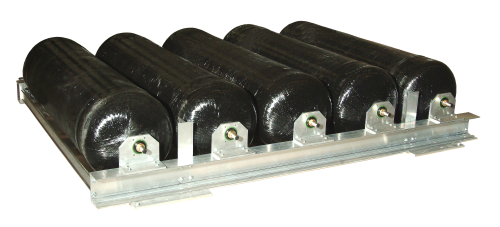
The Office of Energy Efficiency and Renewable Energy is providing more than US$7 million to four selected organisations, which are in turn providing close to $2 million in cost share.
This investment is part of the DOE’s commitment to US leadership in advanced fuel cell technology research to help car makers bring more fuel cell electric vehicles into the mainstream market.
Carbon fibre composites
Lincoln Composites is part of a project led by the DOE's Pacific Northwest National Laboratory, which will receive up to $2.1 million in funds.
Working in collaboration with Ford Motor Company, Toray Carbon Fibers America Inc and AOC Inc, this project will focus on improving carbon fibre composite materials and the design and manufacture of hydrogen storage tanks.
The team expects to lower the cost of manufacturing high-pressure hydrogen storage vessels by more than a third relative to current projections.
Lincoln Composites, headquartered in Lincoln, Nebraka, manufactures the TITAN™ and TUFFSHELL® composite storage cylinders for hydrogen and natural gas. The company is part of Norway's Hexagon Composites.
Innovative materials
The other three projects receiving DOE funding are:
- HRL Laboratories LLC: an innovative approach to hydrogen storage using engineered liquids that can efficiently absorb and release hydrogen gas;
- DOE's Lawrence Berkeley National Laboratory, the National Institute of Standards and Technology and General Motors: a theory-guided approach to synthesise novel materials with high hydrogen adsorption capacities; and
- University of Oregon, University of Alabama, DOE’s Pacific Northwest National Laboratory and Protonex Technology Corporation: development of promising new chemical hydrogen storage materials.
Hydrogen cars are emission-free electric vehicles powered by fuel cells fed by hydrogen. The range of a hydrogen car is about 400 km, 3-4 times more than an electric car. Hydrogen requires higher storage pressure than other gases and it is demanding in terms of materials. Pressure, weight and the need for large storage capacity have presented challenges that require composite materials. (Source: Hexagon Composites.) |


